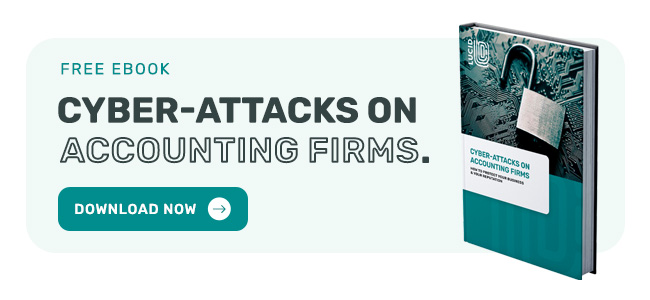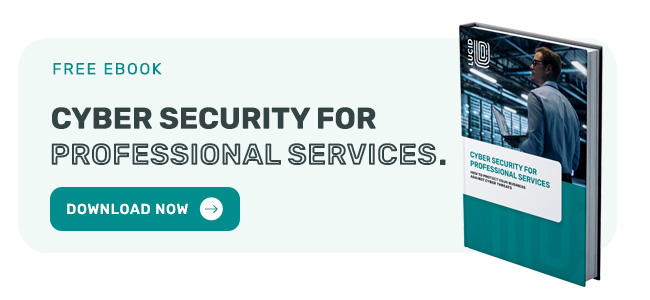“Success in a hybrid work environment requires employers to move beyond viewing remote or hybrid environments as a temporary or short-term strategy and to treat it as an opportunity.”
George Penn
Managing Vice President, Gartner
Remote teams, hybrid work, and offshore workforce are some of the most significant business transformations of the century. Previously held apprehensions now seem to be outweighed by their benefits.
The reality, of course, is that there are some security risks that businesses need to address to optimise the upside of such flexible work arrangements (FWAs). How?
What are Remote, Hybrid, and Offshore Setups?
Let us first clarify how the FWAs differ. Remote work, also known as Work From Home (WFH) or telecommuting, is an arrangement that allows an employee to work from another location aside from the business premises. When remote work was combined with traditional on-site work, it became a hybrid work setup.
On the other hand, offshore employment is when a business hires employees located overseas. Offshoring can be similar to, but different from outsourcing – hiring a third-party company, whether domestically or overseas, to perform services that are typically done in-house.
Why Flexible Work Is Here To Stay
Organisations are now seeing the many benefits of FWAs, for both employers and employees, including:
- Increased productivity
- Reduced costs
- Improved work-life balance and job satisfaction
- Access to a diverse/global talent pool

Cyber Security Risks of Managing Remote, Hybrid, and Offshore Teams
Managing remote and offshore teams can also bring challenges. FWAs can come with communication difficulties, isolation, legal complexity, and cyber security challenges – some of which are discussed below.
In case you get infected, don’t pay the ransom – there is no guarantee that you will get your files back. Seek help from a reputable cyber security expert or your IT consultant, as well as the authorities. (Contact the 24/7 Cyber Security Hotline at 1300 CYBER1 or go to ReportCyber.)
With sloppy security, remote users with unmanaged devices can possibly connect to your cloud storage. This can open the door to unauthorised data access or downloads. There is also added risk if an employee loses their device or credentials. Moreso, remote work can create bad cyber security habits that can make remote staff more vulnerable to threats.
Lack of Compliance
Remote teams may tend to have less supervision or day-to-day touch-in. This could increase the risk of non-compliance with cyber security policies and procedures. Remote workers could also be subject to different laws and regulations depending on their location, which can affect the data protection and privacy requirements of the business.
Unsecure Networks
Remote staff could use unsecured or vulnerable Wi-Fi networks, such as public hotspots or home networks with weak passwords or improper settings. Attackers can then intercept data in transit as it passes through various network connections, possibly leading to a data breach.
Non-exclusive device use
Sharing devices with non-employees who don’t understand your security policies could open a pathway for malicious actors. Inadequate separation between work-related use and personal use of a device can lead to similar challenges.
Solutions to Reduce Flexible Work Security Risks
Modified work setups would require businesses to adopt effective strategies and technologies to reduce the above and other relevant security risks. Here are some strategies and best practices that can mitigate them.
Whichever path you take should be adapted to your industry, company size and current cyber security posture, but never leave your business’ future to chance. Don’t neglect cyber security when planning your business budget.
Strengthen Your Security Policies
Modify your security policies and practices, with due consideration for FWAs. Establish clear guidelines about data access and sharing. Regularly review and update these policies to address emerging threats. Make sure you have effective ways of verifying compliance.
Run Training and Awareness Programs
Educate all your team members about the importance of cyber security and the role they play in protecting sensitive data. Make sure you emphasise to your remote team the importance of strong passwords, multi-factor authentication (MFA), secure virtual private networks (VPNs), and related topics.
Conduct Regular Audits and Assessments
Monitor and audit the activities and performance of remote workers. Use logs, alerts, reports, and other mechanisms to detect and respond to any suspicious or anomalous behaviour or incidents. Do the security audits on a regular basis and use the findings to further improve your security measures.
Adopt a Zero Trust Policy
A zero-trust security approach can be suited to remote, hybrid, and offshore work environments. Adopting such a policy will require the verification of every transaction, assert least privilege access, and rely on intelligence, advanced detection, and real-time response.
Use Secure Internet Connections
You can implement policies that can ensure stronger protection of internet connections:
- Request the use of strong passwords for Wi-Fi networks and routers.
- Do not give permission to use public Wi-Fi or hotspots.
- Install a VPN service to encrypt their traffic.
- Update your software and antivirus at a company level regularly.
- Enable firewall and enforce MFA.
Forbid Device Sharing
Ideally, your employees should use a dedicated computer for work purposes only. This will prevent unauthorised access, accidental deletion, or malware infection from personal or family use.
Your remote staff must also explain to their family members or housemates the risks and consequences of device sharing. They should establish clear boundaries and rules on the exclusive use of work devices.
Provide Secure Equipment
To ensure the non-sharing of computers, some organisations provide work-dedicated equipment to employees who work remotely. The work devices must:
- Be installed with the latest software
- Have regular updates and patches
- Use encryption, VPNs, and MFA
- Have other tools for data protection
Communicate Openly and Safely
Maintain frequent and open communication with remote and offshore workers.
- Use secure platforms and channels to share information and feedback.
- Foster a culture of trust and accountability among staff who are outside of the office.
- Encourage timely reporting of any issues or concerns.
- Use encrypted communication tools for sharing sensitive information.
- Regularly update these tools for protection against the latest threats.
Invest in Cyber Security Services
Implementing the above measures should be part of a cohesive cyber security strategy. Cyber security services can help you build such a strategy, with comprehensive solutions that protect the devices, networks, and data of remote workers.
A cyber security solutions provider can also offer training, monitoring, and support to ensure that remote workers follow best practices and comply with relevant regulations. Investing in cyber security services in Melbourne can bring you enhanced security, plus productivity and peace of mind.
Of course, investing in cyber security services has a cost and you might be wondering if it’s worth it? You should be able to answer that upon reading our article on The True Cost of Protecting Your Business.
Cyber Security Strategy for Businesses with Remote Staff and Offshore Teams
FWAs are not a temporary phenomenon. Remote, hybrid, and offshore work setups are now helping shape the future of work in Australia. As a business leader, you can act now to ensure that your remote teams are cyber resilient and productive.
Are you ready to take the next step in protecting your business? Check out these industry-specific eBooks to learn about the most common types of attacks for your sector and what cyber security strategies you should start implementing today.


